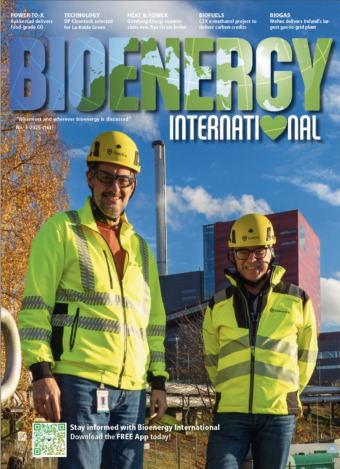As of January 2022, global hygiene and health major Essity AB's Edet tissue mill in Lilla Edet, Sweden is the world's first large-scale facility to produce tissue paper without any fossil-based carbon dioxide (CO2) emissions. Together with Nordic gas and energy major Gasum Oy, Essity’s Edet production facility has successfully switched from liquefied natural gas (LNG) to bioLNG, thereby reducing fossil CO2 emissions to zero under normal operations at the mill.

Gasum supplied liquefied biomethane (bioLNG or LBG) to Essity’s Edet mill already at the end of March 2021 as part of a testing period. After just nine months, Essity is now the first in the world to produce tissue paper on a large scale without fossil CO2 emissions having switched over to 100 percent bioLNG for all deliveries.
Essity wants to contribute to a sustainable society. We help customers and consumers to make choices that reduce negative impact on the environment and minimize our carbon footprint. We are proud to be first in the world with large-scale tissue production without fossil CO2 emissions. This means we can now offer products like kitchen- and toilet paper that people use daily, with a better sustainability profile. It is just one important step of many to break barriers to well-being through leading and sustainable hygiene and health solutions, said Christian Carlsson, Site Manager at Essity’s Edet Bruk tissue mill.
For Edet Bruk, the transition from natural gas to bioLNG will reduce fossil CO2 emissions by around 9 000 tonnes annually. As liquefied natural gas (LNG) and bioLNG are interchangeable, the switch was both possible and cost-efficient as no further investments were required.
As one of the largest biogas producers in the Nordic countries, we are very excited to be part of Essity’s transition. Working together at the forefront of sustainable energy solutions generates experiences and lessons that can be used to accelerate the transition for other industries as well. By continuing our investments in increasing biogas production, we will be able to help more actors in the industry, maritime, and the transport sector to take the steps needed to become carbon neutral, said Tommy Mattila, VP, Industry, Gasum.


